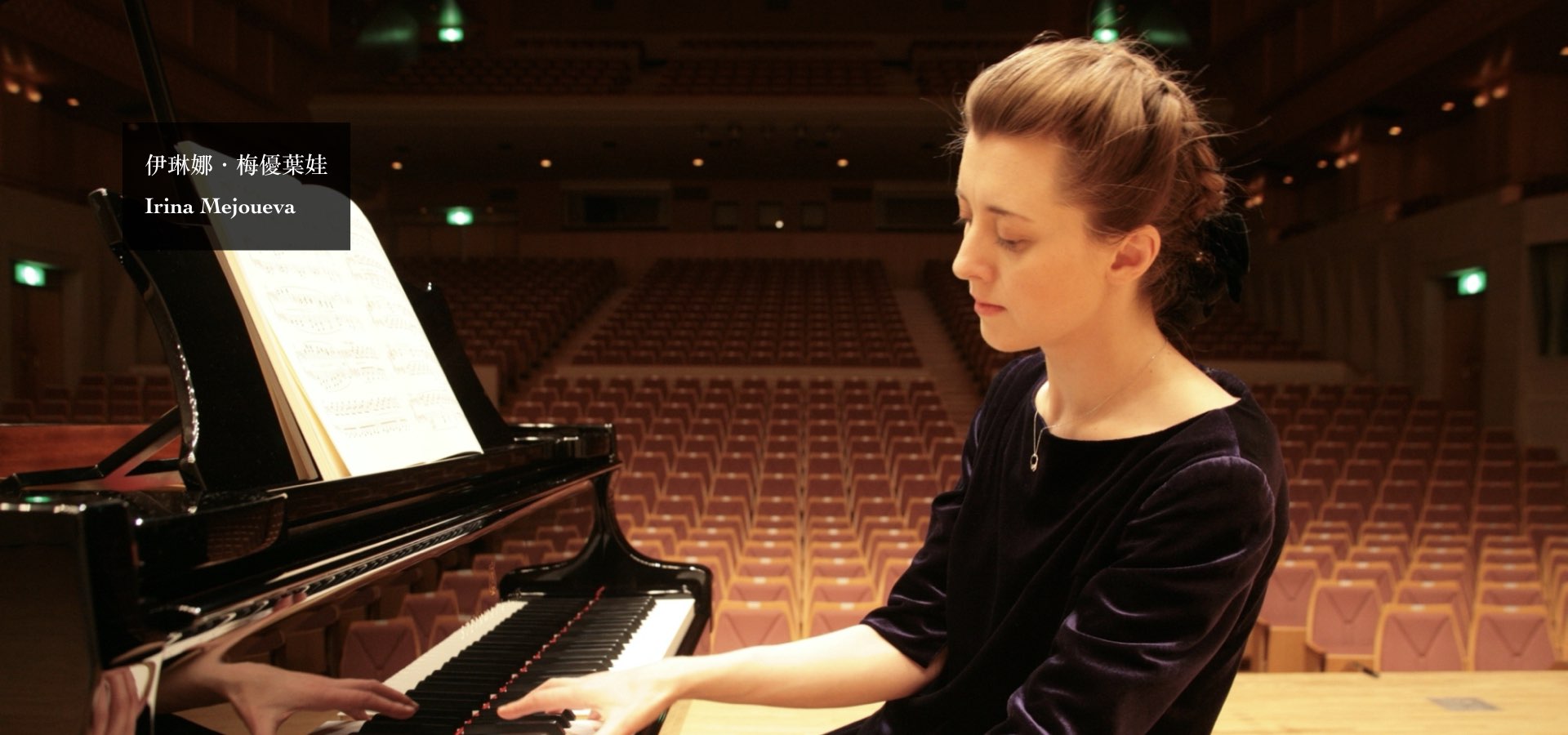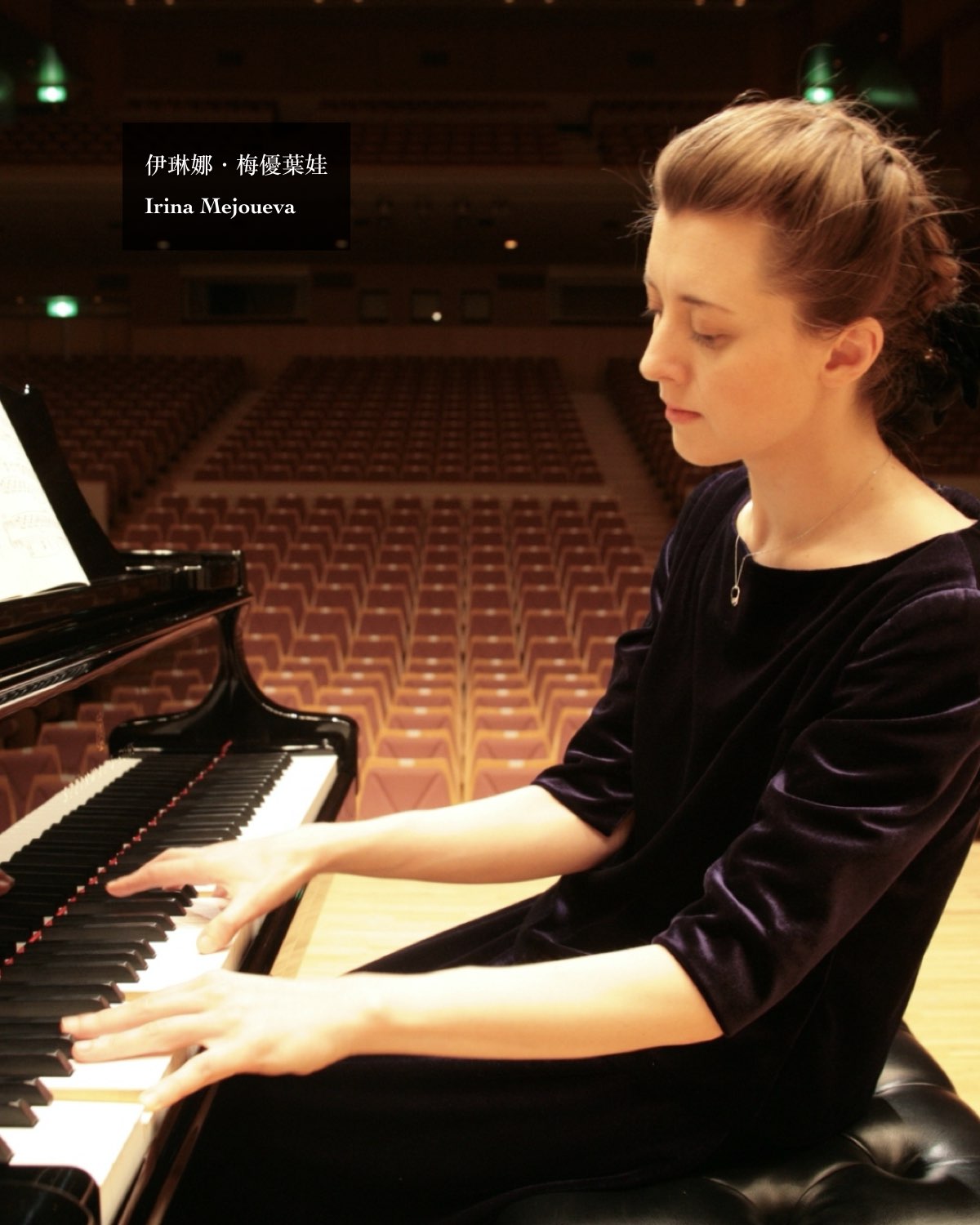

梅優葉娃是當今最能展現俄羅斯音樂靈魂的俄國鋼琴家之一,出身正統俄羅斯鋼琴學派,自涅高茲(Heinrich Neuhaus)、吉利爾斯(Emil Gilels)、李希特(Sviatoslav Richter)、托普(Vladimir Tropp)……等大師一脈相傳。梅優葉娃的演奏風格優雅洗鍊,音色純淨,擁有完美的技巧與攝人的表現力,渾然天成而溫暖自然的歌唱性,細膩敏銳的品味,宛如妮可萊耶娃(T. Nikolayeva)與海布勒(Ingrid Haebler)的化身。1992 年,梅優葉娃奪下荷蘭 Flipse 國際鋼琴大賽金牌後聲名大噪,1997 年首次到日本演奏後,便愛上了這塊土地,立即在日本定居。梅優葉娃的演奏隨後在日本造成一股轟動,音樂會一票難求的盛況在許多城市上演。梅優葉娃在 Denon 與若林工房等唱片公司有著大量錄音,近年梅優葉娃在日本甫完成的貝多芬鋼琴奏鳴曲錄音,得到日本樂評界的一致好評,也獲得日本「唱片藝術」雜誌的最高榮譽,2010 年她接續完成蕭邦數張鋼琴錄音,同樣獲得讚賞,當然最重要的,是她演奏的梅特涅曲目,是公認的當代權威。
Irina Mejoueva, a Japan-based Russian pianist, always appears on stage with scores — but not because she can't memorize the pieces she performs. "I am a performer. Since I am not a composer, the piece exists only in the score," she remarks with a smile. Mejoueva looks at the score when she plays the piano, every time seeing it with new eyes. It's a custom that seems to realize some kind of interaction or even spiritual contact with the great composers of the past.
After studying at Gnessin State Musical College in Moscow, under pianist Vladimir Tropp, Mejoueva won first prize at the Eduard Flipse Piano Competition in Rotterdam in 1992, which led her to start a career as a pianist. She played in the Netherlands, Germany and France. Since 1997 she has settled in Tokyo. "On my first visit to Japan, I felt quite at home, even with a sense of deja vu," recounts Mejoueva, who soon became enamored with kabuki, noh theater and other facets of traditional Japanese culture. "It requires years of training to acquire traditional patterns," she says, conveying her admiration for the performers who have passed down artistic secrets for generations with modesty rigorous discipline. "The individuality of the performer reveals itself naturally through a long experience of training oneself with respect to the work. I am just a beginner."
頁面最後更新:2020/02/07